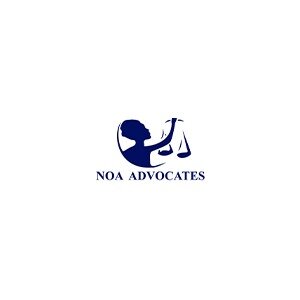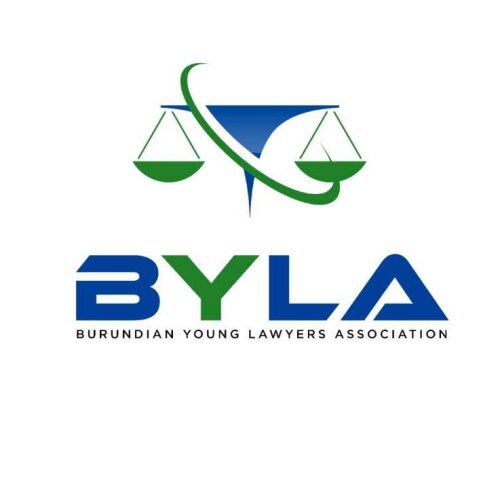Best ESG Advisory & Compliance Lawyers in Bujumbura
Share your needs with us, get contacted by law firms.
Free. Takes 2 min.
List of the best lawyers in Bujumbura, Burundi
About ESG Advisory & Compliance Law in Bujumbura, Burundi
Environmental, Social, and Governance (ESG) Advisory and Compliance refers to a set of standards that companies and organizations use to operate responsibly in relation to environmental protection, social equity, and corporate governance. In Bujumbura, Burundi, ESG principles are increasingly relevant as the business environment evolves and aligns with international best practices. Local regulations, pressure from international investors, and corporate responsibility initiatives are shaping how companies integrate ESG into their business models. Professionals and businesses in Bujumbura need to ensure they are up to date with the latest standards to maintain compliance, minimize risks, and attract investment.
Why You May Need a Lawyer
Obtaining legal advice in the area of ESG Advisory and Compliance can be essential for several reasons. Businesses regularly seek legal help to interpret evolving environmental regulations, implement workplace safety measures, or respond to allegations of non-compliance. Lawyers also assist in drafting internal policies that align with local requirements, international frameworks, or investors' expectations. For companies seeking access to global markets or looking to secure international funding, having a clear and robust ESG compliance program is critical. Legal experts can also help manage disputes, guide sustainable investments, conduct due diligence, and ensure accurate reporting on ESG efforts.
Local Laws Overview
While ESG regulations in Burundi are still developing, several legal frameworks impact how organizations operate in Bujumbura. Environmental laws address issues such as waste management, pollution control, and the sustainable use of natural resources. Labor laws cover worker rights, equitable treatment, and workplace safety. Anti-corruption and transparency requirements reflect international governance standards and are enforced by regulatory bodies. Companies with public offerings or foreign investors may have additional compliance obligations. Although Burundi is a member of several African and global conventions, enforcement practices can vary, so legal guidance is crucial to navigate both local laws and international expectations.
Frequently Asked Questions
What does ESG Advisory & Compliance mean for businesses in Bujumbura?
ESG Advisory & Compliance means that businesses must consider environmental, social, and governance impacts in their operations and ensure compliance with related laws and regulations.
Are ESG compliance requirements mandatory in Burundi?
Some aspects, such as environmental and labor regulations, are compulsory in Burundi. Other ESG practices are increasingly expected by global investors and may be voluntary unless specified by law.
How can a lawyer help with ESG compliance?
A lawyer can help interpret relevant laws, draft policies, provide training, conduct risk assessments, and represent the business in case of disputes or regulatory inquiries.
Are there penalties for not complying with ESG regulations in Bujumbura?
Yes, penalties may include fines, business license suspension, reputational damage, or being barred from certain projects or contracts.
What are examples of environmental compliance in Burundi?
Examples include proper waste disposal, pollution prevention, sustainable use of resources, and adherence to environmental impact assessment requirements.
What social factors are included in ESG in Burundi?
Social factors include fair labor practices, workplace safety, equal opportunity employment, community engagement, and respect for human rights.
What does governance entail in ESG?
Governance covers transparent decision-making, anti-corruption measures, board diversity, responsible leadership, and compliance with ethical standards.
Is ESG compliance important for attracting investors in Bujumbura?
Yes, both local and foreign investors increasingly require ESG compliance as a condition for investment to ensure responsible and sustainable business practices.
Can NGOs or small enterprises be affected by ESG compliance laws?
Yes, all types of organizations can be subject to ESG expectations, particularly if they seek funding or partnerships with international bodies or operate in regulated sectors.
How often do ESG regulations change in Burundi?
While changes may not be as frequent as in other jurisdictions, updates occur as Burundi aligns with regional and global conventions. Staying informed is key.
Additional Resources
Individuals and organizations seeking legal advice or support on ESG matters in Bujumbura can consult the following resources:
- Ministry of the Environment, Agriculture and Livestock: for environmental regulations and guidance - Ministry of Labor, Social Security and Public Service: for labor and workplace compliance matters - Burundi Revenue Authority: for governance and transparency requirements - International organizations such as the United Nations Development Programme (UNDP) and the World Bank: for ESG best practices and capacity-building programs - Local bar associations and legal aid organizations: for referrals to specialized legal practitioners
Next Steps
If you need legal assistance regarding ESG Advisory and Compliance in Bujumbura, start by identifying your specific compliance concern. Gather all relevant documentation related to your business operations, policies, and previous compliance efforts. Consult a qualified lawyer with expertise in local and international ESG standards, or contact your local bar association for recommendations. Consider engaging in regular training or workshops to keep your business informed about evolving ESG requirements. Early legal guidance can help you avoid costly penalties, maintain your business reputation, and position your organization for sustainable growth and investment opportunities.
Lawzana helps you find the best lawyers and law firms in Bujumbura through a curated and pre-screened list of qualified legal professionals. Our platform offers rankings and detailed profiles of attorneys and law firms, allowing you to compare based on practice areas, including ESG Advisory & Compliance, experience, and client feedback.
Each profile includes a description of the firm's areas of practice, client reviews, team members and partners, year of establishment, spoken languages, office locations, contact information, social media presence, and any published articles or resources. Most firms on our platform speak English and are experienced in both local and international legal matters.
Get a quote from top-rated law firms in Bujumbura, Burundi — quickly, securely, and without unnecessary hassle.
Disclaimer:
The information provided on this page is for general informational purposes only and does not constitute legal advice. While we strive to ensure the accuracy and relevance of the content, legal information may change over time, and interpretations of the law can vary. You should always consult with a qualified legal professional for advice specific to your situation.
We disclaim all liability for actions taken or not taken based on the content of this page. If you believe any information is incorrect or outdated, please contact us, and we will review and update it where appropriate.












